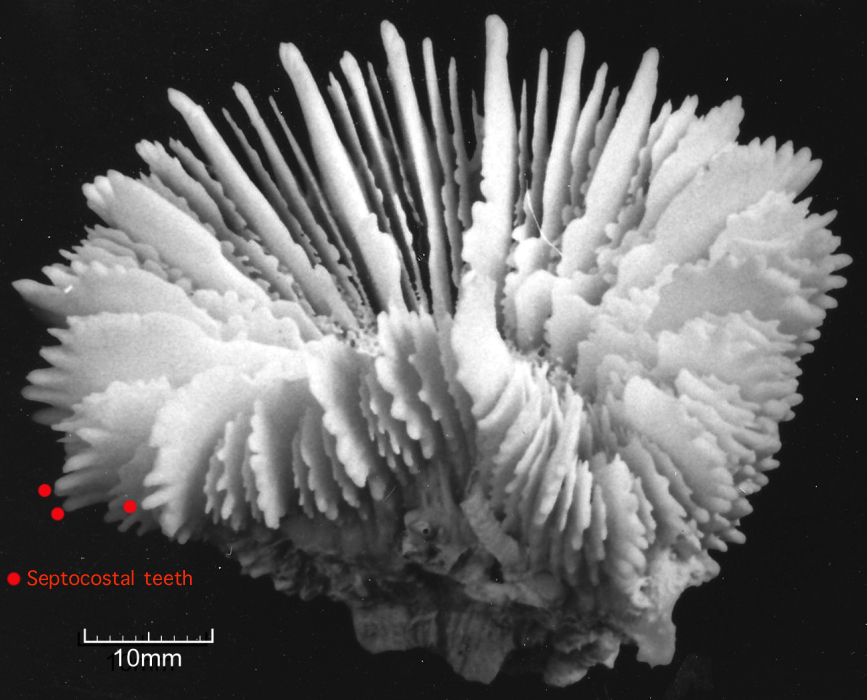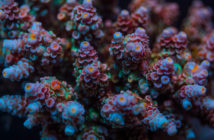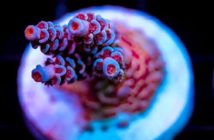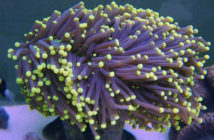Cynarina is a genus of stony coral in the family Lobophylliidae. It is a monotypic species which means that the only species in the genus is Cynarina lacrymalis.
Sometimes reaching up to 6” for a single polyp, these corals are very fleshy in appearance and often referred to as the Cat’s Eye, Tooth Coral, Doughnut Coral or Meat Coral. The coral is found in the Western Indo-Pacific Ocean and ranges in many different color forms from pastel to vivid and translucent. The coloration in the Cynarina coral pictured above is both beautiful and very unusual and therefore classified as an “Ultra” coral. This coral was just featured in a newsletter from livestock wholesaler, Eye Catching Corals.
Aquarium Care
Cynarina corals are not considered to be aggressive but adequate spacing between it and other more aggressive corals is necessary because it can swell to about twice the size of it’s skeleton. In the reef aquarium, this coral is considered to be easy to care for and will grow well with the addition of calcium, magnesium and strontium supplements. In the wild this coral, like most of the corals we keep, contains zooxanthellae and uses sunlight to create organic compounds for most of its energy requirements. However, at night, the coral exposes it’s hidden tentacles that it uses to capture plankton and other small invertebrates as supplemental nutrition. To keep this coral healthy and growing, you should be providing it with meaty foods such as micro-plankton, brine shrimp and LPS pellet foods.
Cynarina lacrymalis prefer lower waterflow. Too much flow can stress these corals and cause tears in the coral tissue from rubbing against the underlying coral skeleton and septocostal teeth.
Reproduction
Cynarina corals are hermaphroditic whereas one animal releases both eggs and sperm into the water where fertilisation occurs. The planula larvae which emerge from the eggs are planktonic and eventually settle on the seabed to undergo metamorphosis into a single Cynarina juvenile polyp. Under conditions of poor light or other stressors, Cynarina corals have been known to reproduce asexually.







